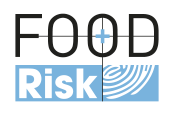On 14 December 2015, the ANSES was commissioned by France’s Directorate-General for Health to update its report entitled “Food allergens: inventory and policy proposals”, which was published in 2002 by the French Food Safety Agency (AFFSA).
Food allergies are a key concern for public health. New food trends and the commercialization of new foods lead to the introduction of new allergen risks.
These new potential allergens, which could notably cause anaphylactic shock, must be identified to prevent these risks.
Presently, 14 allergenic substances are referenced in Annex II of the Regulation (EU) No. 1169/2011. It is compulsory for these allergens to be listed on labels.
From 2002 to 2017, the Allergy Vigilance Network (RAV) recorded 1,951 cases of anaphylaxis for 164 different food allergens. Of the cases identified which did not involve the 14 allergens in the regulation, certain so-called emerging allergens were linked with at least 1% of cases of recorded anaphylaxis.
These reports enabled identification of the following emerging allergens:
- Buckwheat
- Milk from small ruminants (goats and ewes)
- Kiwis
- Pine nuts
- α-galactose (found in mammal meat)
- Peas
- Lentils
For the milk of small ruminants, in two thirds of cases, patients tolerate cow milk, however the regulation 1169/2011 does not require the source species to be specified.
This means that those allergic to the milk of small ruminants must avoid consuming any food products containing milk or its by-products despite only being allergic to the milk of small ruminants. The absence of these allergens in the regulation No. 1169/2011 therefore imposes an unnecessary restriction on consumers.
In the absence of official recommendations on food allergies, the ANSES recommends:
- That public authorities identify mechanisms for significantly improving the identification and characterization of allergens, and the assessment of the incidence or prevalence of allergens in order to guide research and study efforts for better consideration of this public health issue.
- The creation of a guide on best practices aimed at doctors to improve care for allergy sufferers.
- Assessment of the regulation’s efficacy.
The complete report can be found at the following link: ANSES recommendation Referral No. 2015-SA-0257
Aurélie Amouroux, Regulation Manager for Phytocontrol









